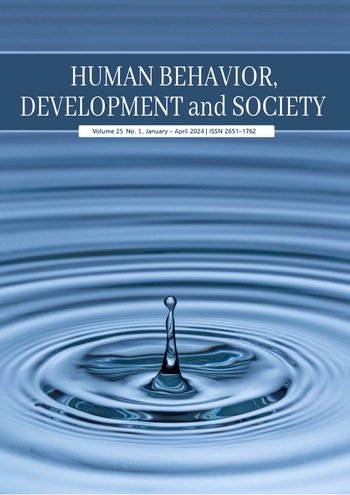Perceptions towards the Flipped Approach for English Language Speaking: Preliminary Observations and Recommendations for a University Classroom in Indonesia
Main Article Content
Abstract
In a traditional learning style where the teacher assumes an authoritative position, students may be receiving input rather than producing output. Contrary to this, a flipped classroom model emphasizes more output; furthermore, input is generated by students’ own preparation for learning activities that are done in class. With an interest in the flipped classroom model, this paper investigates the perceptions of university EFL students in relation to the development of their speaking skills. A questionnaire was distributed to 12 students enrolled in a General English 4 class at a university in Indonesia. This questionnaire aimed to describe students’ satisfaction and experience in learning English through a flipped classroom model. Students’ responses from the questionnaire indicated that the flipped classroom model is a viable approach that can have a positive influence on students’ learning satisfaction and experience. The study also indicated that students particularly enjoyed speaking activities which were done in a collaborative manner. Based on this finding, a recommendation for practice is offered.
Article Details

This work is licensed under a Creative Commons Attribution-NonCommercial-NoDerivatives 4.0 International License.
Copyright: Asia-Pacific International University reserve exclusive rights to publish, reproduce and distribute the manuscript and all contents therein.
References
Abdullah, M. Y., Hussin, S., & Ismail, K. (2019). Implementation of flipped classroom model and its effectiveness on English speaking performance. International Journal of Emerging Technologies in Learning, 14(9), 130–147. https://doi.org/10.3991/ijet.v14i09.10348
Afrilyasanti, R., Cahyono, B. Y., & Astuti, U. P. (2016). Effect of flipped classroom model on Indonesian EFL students’ writing ability across and individual differences in learning. International Journal of English Language and Linguistics Research, 4(5), 65–81.
Afrilyasanti, F., Cahyono, B.Y., & Astuti, U. P. (2017). Indonesian EFL students’ perceptions on the implementation of flipped classroom model Rida Afrilyasanti Sekolah Menengah Atas (Senior High School) Negeri 8 at Malang, Indonesia. Journal of Language Teaching and Research, 8(3), 476–484. http://dx.doi.org/10.17507/jltr.0803.05
Akçayır, G., & Akçayır, M. (2018). The flipped classroom: A review of its advantages and challenges. Computers & Education, 126, 334–345.
Alsowat, H. (2016). An EFL flipped classroom teaching model: Effects on English language higher-order thinking skills, student engagement and satisfaction. Journal of Education and Practice, 7(9), 108–121.
Arung, F., & Jumardin, J. (2016). Improving the students’ speaking skill through debate technique. The Journal of English Education, 1(1), 70–76. https://doi.org/10.31327/jee.v1i1.85
Chen Hsieh, J. S., Wu, W. C. V., & Marek, M. W. (2017). Using the flipped classroom to enhance EFL learning. Computer Assisted Language Learning, 30(1-2), 1–21.
DeLozier, S.J., & Rhodes, M.G. (2017). Flipped classrooms: A review of key ideas and recommendations for practice. Educational Psychology Review, 29, 141–151. https://doi.org/10.1007/s10648-015-9356-9
Gayatri, P., Sit, H., Chen, S., & Li, H. (2023). Sustainable EFL blended education in Indonesia: Practical recommendations. Sustainability, 15(3). https://doi.org/10.3390/su15032254
Heryana, L. M., Mobit, M., & Ridwan, I. (2022). Engaging flipped-classroom model in an Indonesian EFL grammar instruction. Jurnal Pendidikan Bahasa, 9(1), 1-9. https://unimuda.e-journal.id/jurnalinteraction/article/view/ 1520/980
Kondo, P. (2018). Contributing factors to students’ English speaking performance at Universitas Klabat. Human Behavior, Development and Society, 17, 79–88.
Lestari, I. W. (2021). Flipped classroom in Indonesian higher education: A mixed-method study on students' attitudes and experiences. Studies in English Language and Education, 8(1), 243–257.
Limniou, M., Schermbrucker, I. & Lyons, M. (2018). Traditional and flipped classroom approaches delivered by two different teachers: The student perspective. Education and Information Technologies, 23, 797–817. https://doi.org/10.1007/s10639-017-9636-8
Loo, D. B. (2020). Integrating critical thinking in online language tasks: Considerations for an academic writing class. International Journal of TESOL Studies, 2(2), 52–61. https://doi.org/10.46451/ijts.2020.09.05
Mettetal, G. (2001). The what, why and how of classroom action research. Journal of the Scholarship of Teaching and Learning, 2(1), 6–13. https://scholarworks.iu.edu/journals/index.php/josotl/article/view/1589
Mubarok, A. F., Cahyono, B. Y., & Astuti, U. P. (2019). Effect of flipped classroom model on Indonesian EFL students’ writing achievement across cognitive styles. Dinamika Ilmu, 19(1), 115–131.
Pratiwi, D. I., Ubaedillah, U., Puspitasari, A., & Arifianto, T. (2022). Flipped classroom in online speaking class at Indonesian university context. International Journal of Instruction, 15(2), 697–714.
Safiyeh, H. A., & Farrah, M. (2020). Investigating the effectiveness of flipped learning on enhancing students’ English language skills. English Review: Journal of English Education, 9(1), 193–204. https://doi.org/10.25134/erjee.v9i1.3799
Santhanasamy, C., & Yunus, M. M. (2022). A systematic review of flipped learning approach in improving speaking skills. European Journal of Educational Research, 11(1), 127–139.
Taufik, W.J. (2020). The Implementation of flipped classroom as an attempt to improve Indonesian EFL learners’ speaking performance. Proceedings of the International Conference on Educational Research and Innovation (ICERI 2019). https://doi.org/10.2991/assehr.k.200204.028
Zainuddin, Z. (2017). First-year college students' experiences in the EFL flipped classroom: A case study in Indonesia. International Journal of Instruction, 10(1), 133–150.
Zainuddin, Z., Habiburrahim, H., Muluk, S., & Keumala, C. M. (2019). How do students become self-directed learners in the EFL flipped-class pedagogy? A study in higher education. Indonesian Journal of Applied Linguistics, 8(3), 678–690.
Zein, S., Sukyadi, D., Hamied, F. A., & Lengkanawati, N. S. (2020). English language education in Indonesia: A review of research (2011–2019). Language Teaching, 53(4), 491–523.


